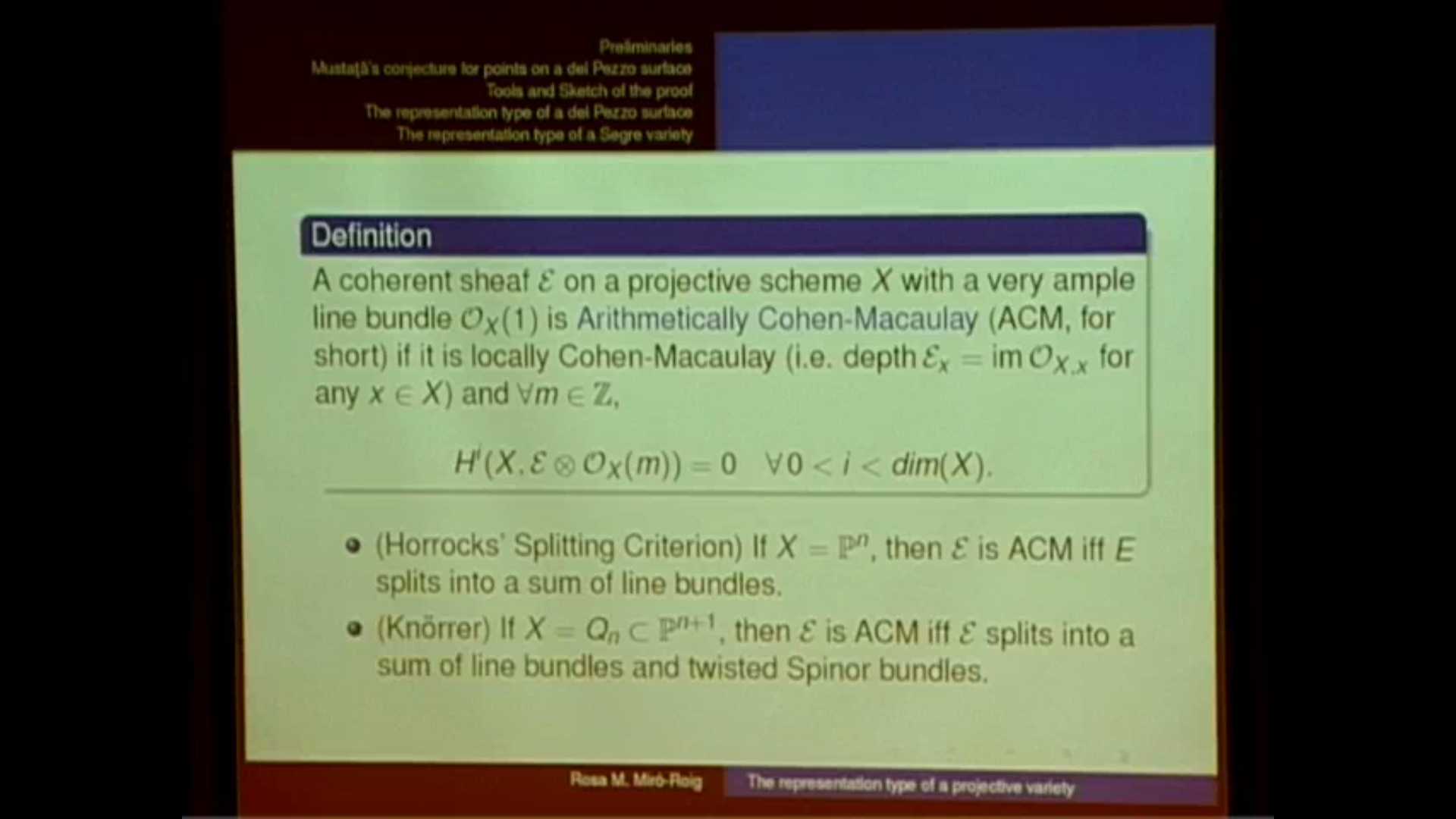The representation type of a projective variety
Presenter
February 13, 2013
Keywords:
- Cohen-Macaulay modules
- Cohen-Macaulay sheaves
- ACM bundles
- projective bundles
- finite representaiton type
- noncommutative algebra
- representation theory
- homological algebra
- commutative algebra
- resolutions of modules
MSC:
- 18G35
- 18G10
- 18Gxx
- 16Gxx
- 18-xx
Abstract
In my talk, I will construct families of non-isomorphic Arithmetically Cohen Macaulay (ACM) sheaves (i.e., sheaves without intermediate cohomology) on projective varieties. Since the seminal result by Horrocks characterizing ACM bundles on P^n as those that split into a sum of line bundles.
ACM sheaves also provide a criterium to determine the complexity of the underlying variety.
More concretely, this complexity can be studied in terms of the dimension and number of families of indecomposable ACM sheaves that it supports, namely, its representation type. Along this lines, a variety that admits only a finite number of indecomposable ACM sheaves (up to twist and isomorphism) are called of finite representation type. These varieties are completely classified: They are either three or less reduced points in P^2, a projective space P^n_k, a smooth quadric hypersurface X\subset P^n, a cubic scroll in P^4, the Veronese surface in P^5, or a rational normal curve.
On the other extreme of complexity we would find the varieties of wild representation type, namely, varieties for which there exist r-dimensional families of non-isomorphic indecomposable ACM sheaves for arbitrary large r. In the case of dimension one, it is known that curves of wildrepresentation type are exactly those of genus larger or equal than two. In dimension greater or equal than two few examples are know and in my talk, I will give a brief account of the known results.
